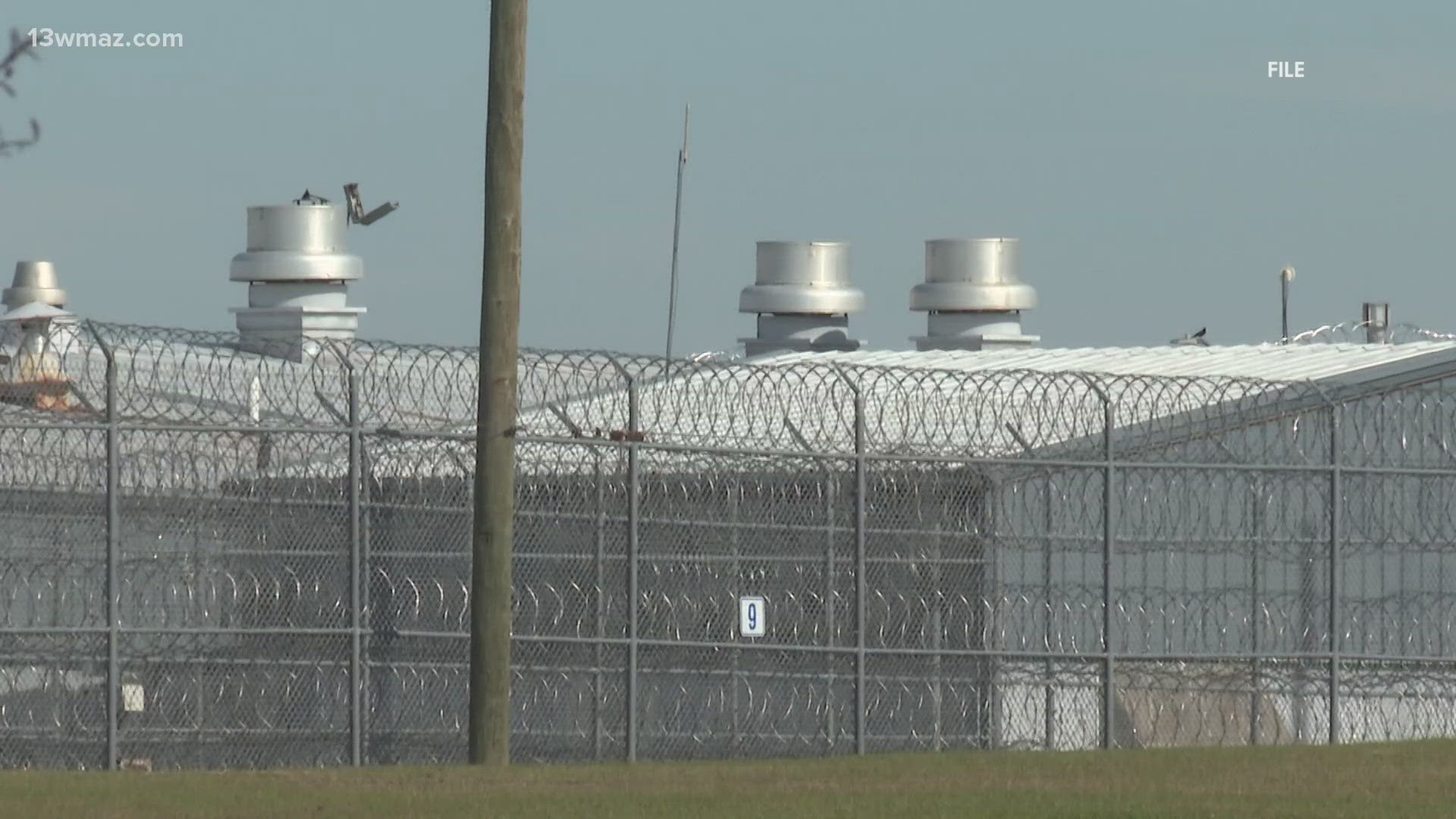MACON, Ga. — Contraband has long been an issue in Georgia prisons, and last month, a federal indictment charged 23 people with buying or providing drugs, cellphones and more banned items in Georgia's prisons.
The indictments — filed in the U.S. Southern District of Georgia and recently unsealed — shine a light on two contraband networks and how they get drugs and other items into Georgia prisons.
Prosecutor says the networks brought "massive quantities of drugs," ranging from meth to molly to marijuana, and cellphones to Telfair State and Smith State Prisons.
The indictments were part of "Operation Night Drop," a law enforcement operation involving the DEA, the Department of Corrections and local authorities.

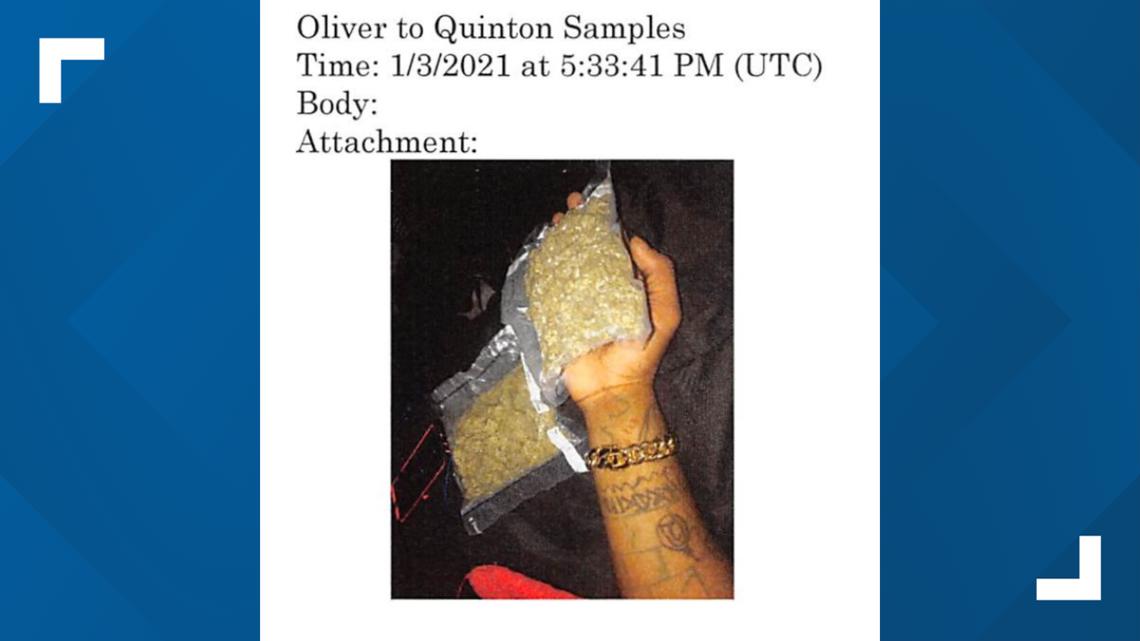
The federal government also seized 10 drones and 21 guns during their investigation.
Telfair State Prison drops
Asa "Foolay" Ward, serving a life sentence for murder in Telfair State Prison, was one of the indicted inmates whose correspondence with the outside world was included in the indictment.
It says Ward, who was convicted in Fulton County, organized a drop with former inmate Jamar Hill on Aug. 8, 2020.
"Make sure you have all black to shawty... or a dark color so you'll blend in," Ward is quoted in the indictment as texting Hill. "Also it's raining down here so s--- gone be wet while walking threw them woods foo.... (the best time to strike is while its raining to shawty)... REMEMBER THAT."
Ward is quoted in the text messages coordinating a pick-up "wit my lil driver fooly" and told Hill he'd get paid for the drop once he got in the car and was on the way, the indictment said.
In another count, Ward was texting Torlandus "MUSTAFA$UPA" Fuller on Feb. 21, 2020.
From inside the prison, text messages show Ward purchased a drone for Fuller from the website "urbandrones.com."
"I made sure we got every attachment that comes with that mf and 2 day shipping so it'll be here by Tuesday," Ward wrote to Fuller.

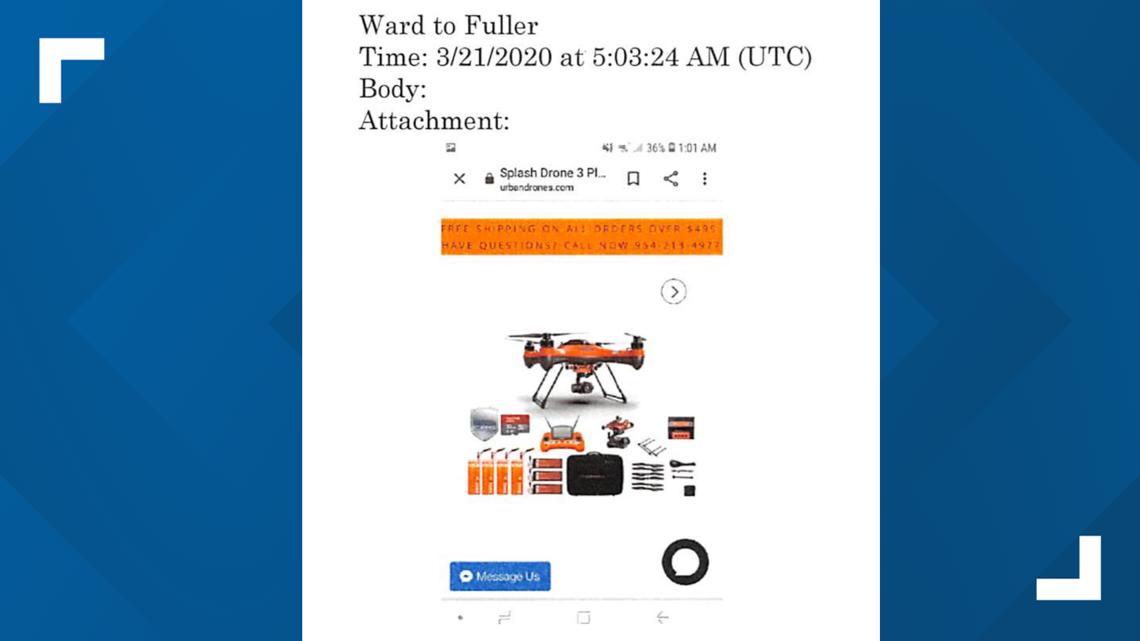
In a text message with someone called "LSBmank" on April 18, 2020, Ward also described the logistics of getting the contraband into the prison once the drone drops the items off.
"My man's still tryna make the move tonight... we'll have to play the RED door though foo," Wood wrote. "It can either be in here or B building. But if it's B building then we'll have to find someone up there to pick up we can send either E or Ball up there 2 get it."
Families who smuggle:
Operation Night Drop, which involves two separate federal indictments, includes charges against three siblings: Quinton Samples, Quintaveus Samples and Quinesha Oliver.
While Quinton Samples was serving a five-year sentence at Smith State Prison in Glennville, the indictment accused his siblings — who were not incarcerated — of helping smuggle drugs into the prison.

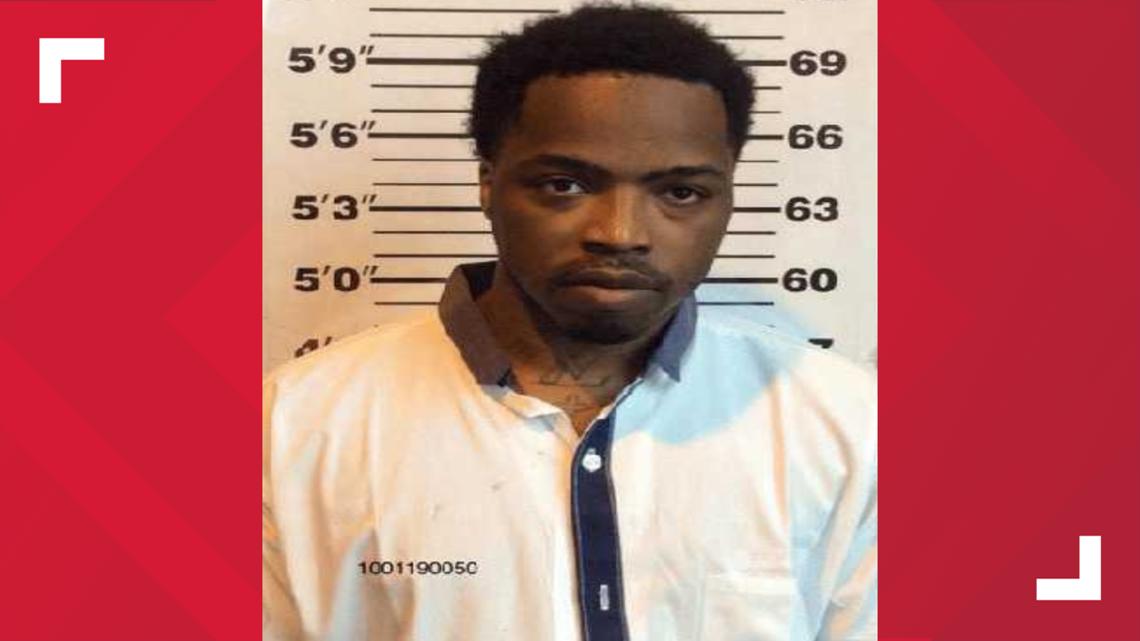
Samples' sister, Oliver, was in contact with a number of co-defendants at Smith State Prison. The exchanges illustrate the role of drones in the contraband trade.
Thomas "Tee" Cothran, serving a life sentence for a Fulton County murder conviction, was discussing a drop with Oliver.
"U get that drone and go praxtixe wit it bae, and learn the layout of dis mf, I'll let u xum make it happen bae,and dats only because I trust u, and nobody else bae," Cothran texted Oliver on Aug. 9, 2020.
On Aug. 10, 2020, Quinton — who was behind bars — texted Oliver in preparation for a drop, the indictment says.
Recognizing the role of drones in getting contraband behind bars, the Department of Corrections uses drone blockers to help disrupt drones flying into the prison's "no-fly zone."
However, the indictment shows that contraband smugglers have found workarounds, allowing them to bypass the blockers.
"It make it fly over the prison if u don't put it on there the drone gone crash they got drone blockers Down here," Samples wrote to Oliver on Aug. 10, 2020.
In a text later, Samples directed Oliver to a person who would help with the technical side of things.
"Text the white dude and tell him you will cash app him the $150 for the info on how to disable the no-fly zone," Samples wrote to Oliver on Aug. 22, 2020.
Samples sent a flight path and aerial photos of the prison leading up to the drop to his sister.

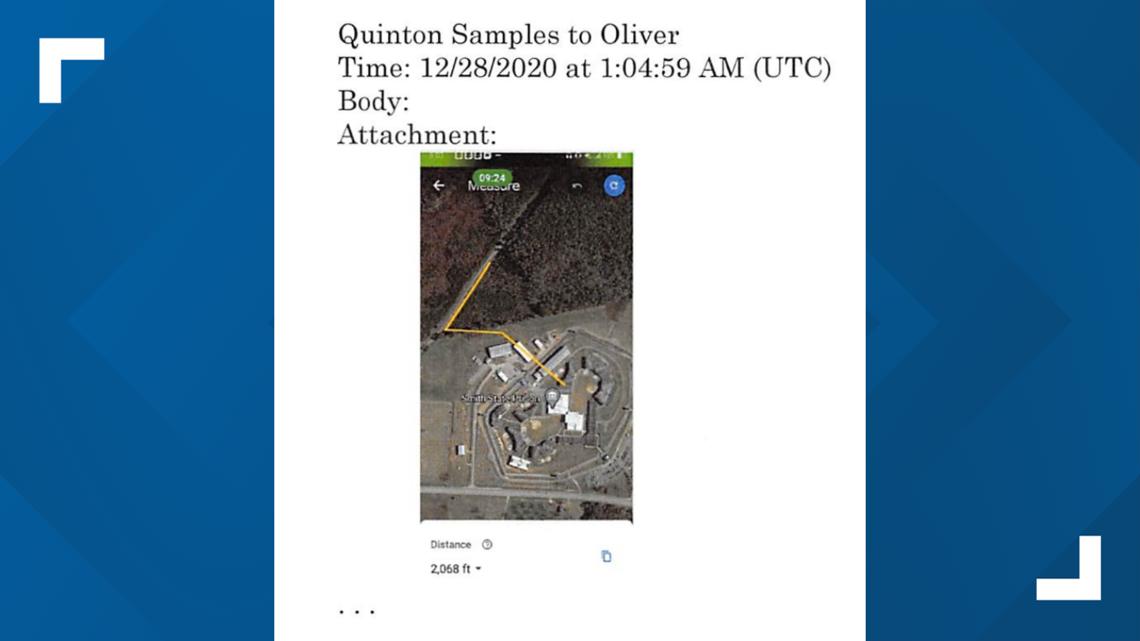
However, in one text message on Dec. 31, 2020, Oliver expressed some concern over the driving of one of her co-conspirators as they headed to the prison.
"This man doing 95 and s--- I keep saying slow down we got all these damn drugs in the car," Oliver wrote to Samples.
While the indictment does not mention whether or not the drop was successful, the indictment includes additional text messages between Oliver and her brother, suggesting at the very least they were not caught.
However, on Aug. 29, 2021, another contraband drop didn't go too well. One inmate, Kelvin Rogers, texted Oliver concerned.
"What's up baby are y'all ok," Rogers texted. "They just locked your brother up this morning. L building was a bad idea, n---- telling everything clearly... Can y'all please lmk y'all ok?"
They weren't. According to an incident report from the Tattnall County Sheriff's Office, both Samples and Oliver were arrested after the Aug. 29, 2021, contraband drop.
The call for change
Before the drones and the drops — underpinning all of the network's activities — are contraband cell phones connecting inmates to the outside world.
That reality has been recognized by Georgia law enforcement, and in a June letter, Georgia Attorney General Chris Carr urged the FCC to change its policies.
Last year in Georgia alone, the Department of Corrections confiscated 8,074 contraband cell phones, Carr said.

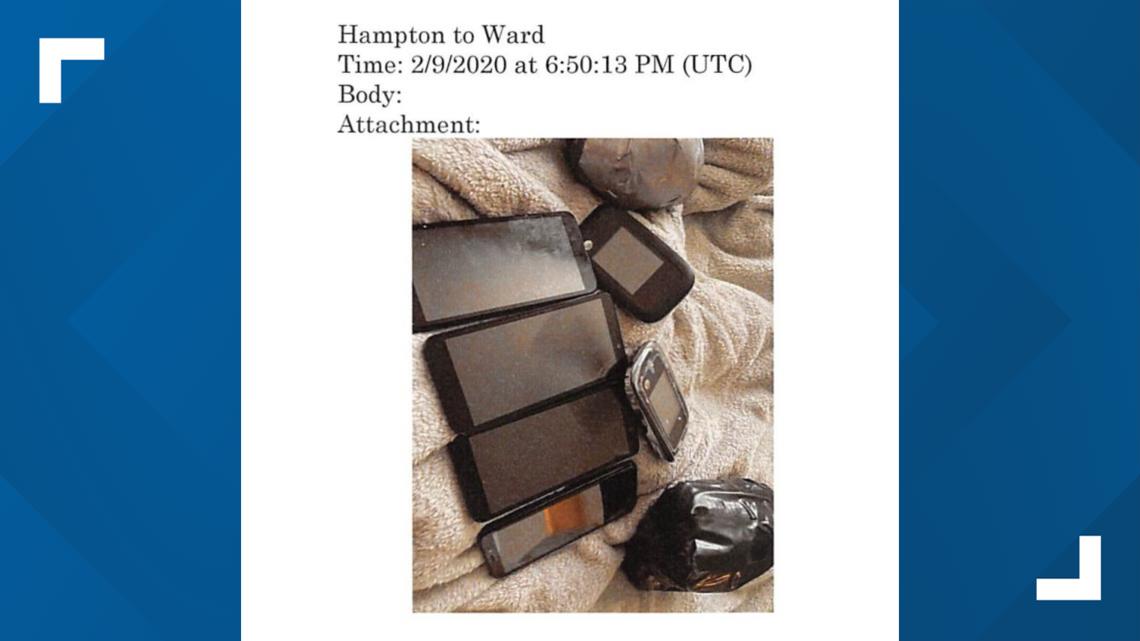
Right now, Carr says, the FCC does not allow states to use cell phone jammers at prison facilities, but in a letter to the agency, Carr called for that policy to be changed.
“The easiest way to protect the public from the harms caused by contraband cell phones is to allow for the use of cell phone jamming technology in prisons and jails, but the FCC continues to block our efforts,” Carr said in the press release.
Not only does cell phones in prison help inmates get drugs, Carr says it allows criminals to orchestrate crimes on the outside, which can come with deadly consequences.
An incarcerated gang leader allegedly orchestrated a hit on an 88-year-old Georgia veteran from behind bars, Carr said. In another case in North Carolina, a gang leader used a contraband cell phone to arrange the kidnapping of a prosecutor's father, the press release said.
"I ask that the FCC consider the recognized danger that a ban on the use of cell phone jamming devices in state prisons poses," the letter to the FCC says. "I ask that you and the Commission take immediate action to allow for the use of these jamming devices in state prison systems."
You can find a full list of charges in "Operation Night Drop" here.

